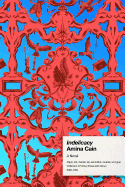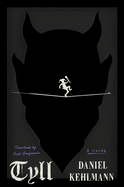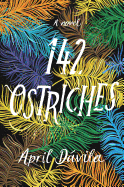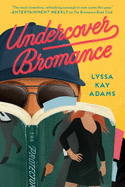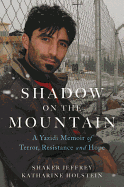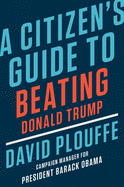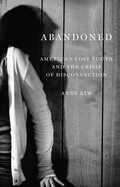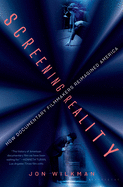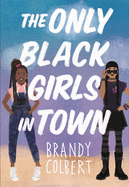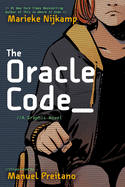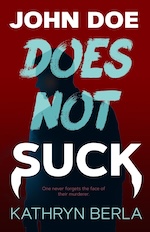 |
| (photo: Sam Bond) |
Christina Soontornvat grew up in a small Texas town, where she spent many childhood days behind the counter of her parents' Thai restaurant with her nose in a book. She now lives in Austin, Tex., with her husband and two children. Soontornvat recently took a few moments during a school visit tour to chat with us about Victor Hugo, compassion and A Wish in the Dark.
How did you decide to turn Les Miserables into a kid's story?
I was introduced to Les Mis when I was about 10 years old, on a trip to visit family in Thailand. My mom was reading the book. I think she chose it because, at that time, there was very little English media over there, so she just grabbed the biggest book she could find. She read it during the day, and at bedtime she would recap the story for me. Even though it is a mature story and I couldn't read the novel until I was an adult, the characters and the situations they got into hooked me. I knew it had the power to be a story that connected with kids. There are big questions and moral predicaments in the novel that middle-grade readers are eager to tackle. When you are 10 to 13 years old, you are ready to start breaking out of this tidy version of the world you've been learning about.
How did you develop the fantasy elements?
Almost everything I write is fantasy. Even if I start a realistic story, a dragon will pop up. I struggled at first with Father Cham's magical powers. I worried, "Am I crossing a line by imbuing a religious figure with magical powers?" However, Thai Buddhism has some elements that we in the West might think of as magic, though it's not the way they think of it. I grew up with Buddhist family members who talked about making wishes, having good fortune, and ghosts and spirits that looked after us. It's similar to the magical realism of Latin-American literary tradition, in that magic is not something that is different or strange, it's a part of everyday life.
Some of my earliest memories of Thailand are of being a toddler and being out on the water at night and seeing so many lights. They seemed like magic, so that's what I wanted to give a magical element to. There are also ceremonies, festivals and celebrations involving light all over Asia. In Thailand, there are many occasions where you light a candle, you make a wish or say a prayer and you send the light up into the sky or out on the river.
What does being an #ownvoices author mean to you?
I'm aware that I'm standing on the shoulders of people who came before me, advocates like the authors who founded We Need Diverse Books, who have done so much to crack open the field and make space for diverse voices. Mine is not the only Asian middle grade fantasy written by an Asian author coming in 2020 and 2021. It's wonderful, and it's high time. If I'd had a book like this when I was younger, it would have meant the world to me. You don't know how much you wanted something until it's put in front of you, and then you think, "Oh, that's what I've been missing!" When your culture is represented in a book, it's a signal that you matter, especially in fantasy, because it has been dominated for so long by Western mythology and fairy tales.
Fantasy has also been male-dominated, but your version of Javert is a strong female character.
She's a more innocent and childlike version of Javert in that she's lived a life of great privilege. Over the course of the book, she confronts that privilege. Thai culture is at times patriarchal, so having a female who's physically strong and strong-willed was important to me. Her path does not mirror Javert's path because she changes her worldview. She has moments when her world gets flipped upside-down, and she realizes everything she has learned is wrong. She changes instead of despairing--that's the source of her heroism.
The Governor displays some of Javert's negative traits.
I always felt some sympathy for Javert. I hope it's clear the Governor comes from a place of good intentions. Even if you look at what's going wrong in our own world and people who are doing cruel things, they often start off trying to do the right thing. But even the best intentions are meaningless if they lead to acts of cruelty.
As opposed to choosing compassion.
The light in my story is a metaphor for compassion. The Governor thinks you need to earn it and not everyone deserves it. In opposition, Father Cham says, "What if we just give it to everyone?" It shouldn't be a radical idea, but it is. It would have taken me a lot longer to understand if it had not been for the books I read. Reading Les Miserables changed me. Literature does many things, but the most important is to foster empathy. Eighteenth-century France or a fantasy story set in Thailand, both empower you to have empathy.
What can we expect from you in the future?
My nonfiction book about the Thai cave rescue comes out in September. I was in Thailand when the events took place, and I went back to do research, conduct interviews and meet the soccer team. I had done research about Thailand and Buddhism for A Wish in the Dark, not realizing it would also be useful for the Thai cave rescue story. Buddhism and spirituality were so important to the kids and their coach when they were waiting to be found. They waited for 10 days, and they got through it with meditation and prayer.
I also have another middle grade fantasy coming, an adventure on the high seas about a girl who's an assistant to a mapmaker. She thinks she's running away from her old life, but she's running all the way around the globe only to have to confront her past--and there are dragons in the waters. --Jaclyn Fulwood
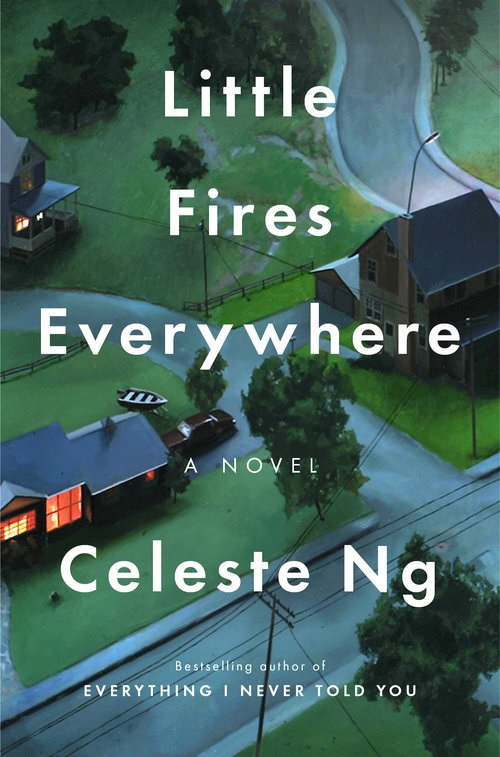 In the opening pages of Celeste Ng's 2017 novel, Little Fires Everywhere (Penguin, $17), the young Isabelle Richardson has just set fire to her family's home. It's an introduction rife with tension and drama that speaks to what's to come. It's also the kind of drama that lends itself well to on-screen adaptation, as evidenced by Hulu's debut of the series Little Fires Everywhere last week.
In the opening pages of Celeste Ng's 2017 novel, Little Fires Everywhere (Penguin, $17), the young Isabelle Richardson has just set fire to her family's home. It's an introduction rife with tension and drama that speaks to what's to come. It's also the kind of drama that lends itself well to on-screen adaptation, as evidenced by Hulu's debut of the series Little Fires Everywhere last week.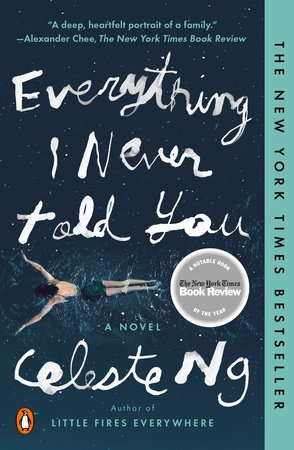 This incredibly talented writer explores big, complicated subjects like motherhood, family, belonging and art, to name a few. Her debut, Everything I Never Told You (Penguin, $17), carefully reveals the many stories that the Lee family keeps from each other in the months leading up to the inexplicable death of their 16-year-old daughter, Lydia. In both of her novels, Ng displays an uncanny ability to explore the messy gray areas of complex questions: Who gets to raise a child, and how? Should secrets ever be kept? What does it mean to be understood? Is there a right and a wrong, and if so, what happens when it isn't obvious which is which?
This incredibly talented writer explores big, complicated subjects like motherhood, family, belonging and art, to name a few. Her debut, Everything I Never Told You (Penguin, $17), carefully reveals the many stories that the Lee family keeps from each other in the months leading up to the inexplicable death of their 16-year-old daughter, Lydia. In both of her novels, Ng displays an uncanny ability to explore the messy gray areas of complex questions: Who gets to raise a child, and how? Should secrets ever be kept? What does it mean to be understood? Is there a right and a wrong, and if so, what happens when it isn't obvious which is which?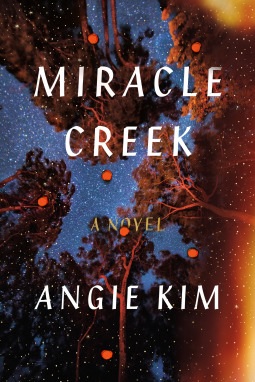 On the surface, neither Angie Kim's Miracle Creek nor Bryn Greenwood's All the Ugly and Wonderful Things seem that similar to Ng's novels. Miracle Creek (Sarah Crichton, $27) centers on a courtroom drama following the explosion of a controversial alternative medicine clinic; All the Ugly and Wonderful Things (Griffin, $15.99) features the daughter of a drug dealer and her relationship with a much older employee of her father. But like Ng's novels, both shine in the ways they explore impossible, unanswerable questions. Any of these four would make excellent fodder for book club discussion while you await the next episodes of Little Fires Everywhere.
On the surface, neither Angie Kim's Miracle Creek nor Bryn Greenwood's All the Ugly and Wonderful Things seem that similar to Ng's novels. Miracle Creek (Sarah Crichton, $27) centers on a courtroom drama following the explosion of a controversial alternative medicine clinic; All the Ugly and Wonderful Things (Griffin, $15.99) features the daughter of a drug dealer and her relationship with a much older employee of her father. But like Ng's novels, both shine in the ways they explore impossible, unanswerable questions. Any of these four would make excellent fodder for book club discussion while you await the next episodes of Little Fires Everywhere.


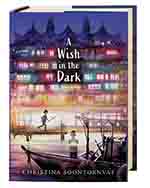


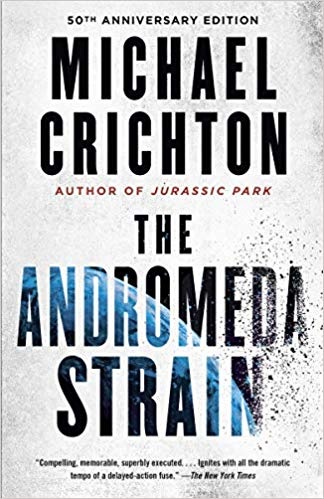 The Andromeda Strain by Michael Crichton (1969) concocts an extraterrestrial microorganism capable of inflicting catastrophic damage on the human body despite a lack of DNA or other structures compatible with life as we know it. When a military satellite lands near Piedmont, Ariz., all but two of the town's residents are killed by instantaneous blood clotting. Dr. Jeremy Stone, leader of a secret scientist squad called Wildfire, takes these two survivors--an alcoholic old man and an infant--to the team's laboratory under the Nevada desert. The base's high security includes a nuclear self-destruct mechanism, which can be turned off only by the team's single unmarried member, and a plethora of other protections that the titular pathogen inevitably overcomes.
The Andromeda Strain by Michael Crichton (1969) concocts an extraterrestrial microorganism capable of inflicting catastrophic damage on the human body despite a lack of DNA or other structures compatible with life as we know it. When a military satellite lands near Piedmont, Ariz., all but two of the town's residents are killed by instantaneous blood clotting. Dr. Jeremy Stone, leader of a secret scientist squad called Wildfire, takes these two survivors--an alcoholic old man and an infant--to the team's laboratory under the Nevada desert. The base's high security includes a nuclear self-destruct mechanism, which can be turned off only by the team's single unmarried member, and a plethora of other protections that the titular pathogen inevitably overcomes.